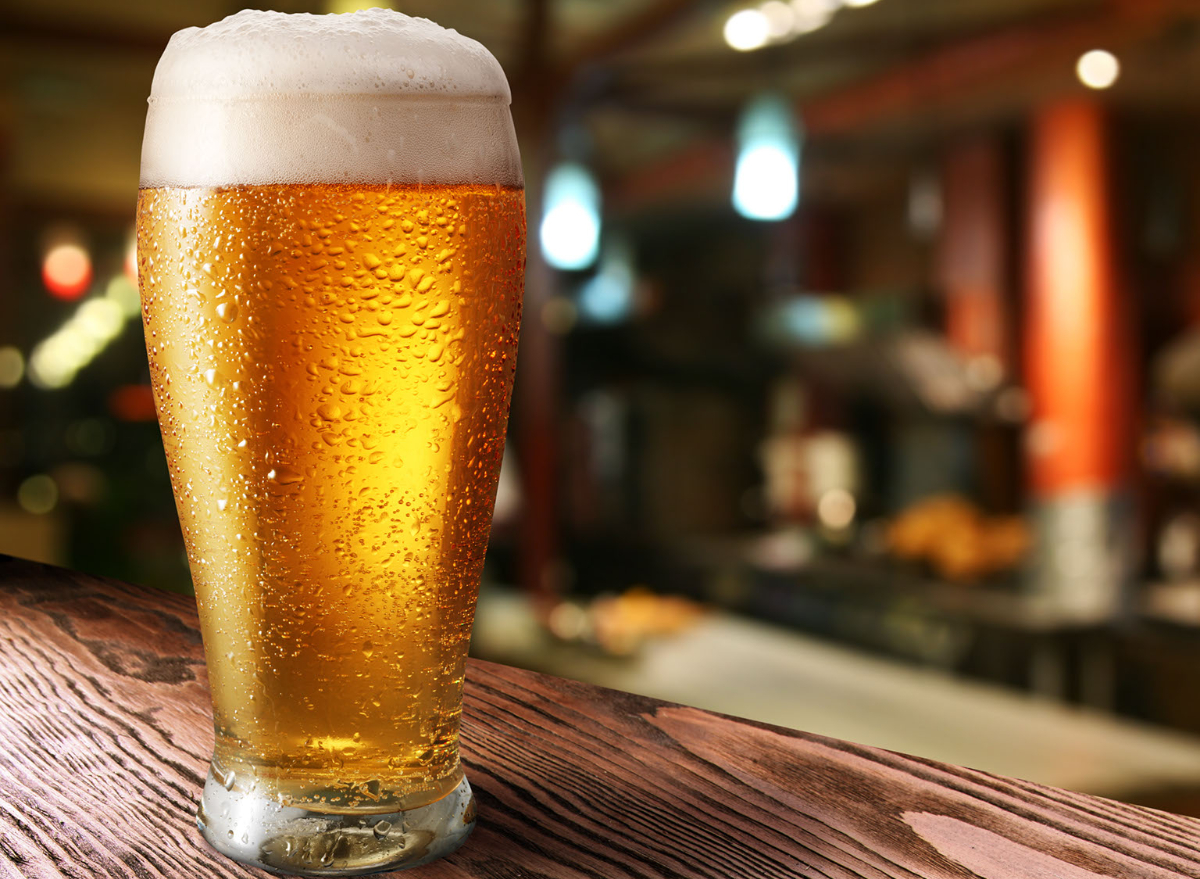One Major Side Effect Beer Has On Your Gut, Says Science

Beer is enjoyable during any season, whether you're drinking one by the pool on a hot summer day, or sipping on a few with friends during a fall movie night.
Although a couple beers here and there aren't known to cause many issues, there is still the possibility of side effects like weight gain, an upset stomach, or an increased risk of raising your blood pressure. And one particular effect beer can have on your gut is the possibility of intestinal inflammation.
According to a report from Alcohol Research Current Reviews, consuming larger quantities of alcohol over time, which includes our beloved beer, can cause inflammation of the gastrointestinal tract that can then lead to greater issues in other areas of the body such as inflammatory bowel syndrome, certain gastrointestinal cancers, and liver disease.
Continue reading to learn about what makes beer and other alcohol potential inflammatory drinks, and for more healthy eating tips, make sure to check out The 7 Healthiest Foods to Eat Right Now.
What is beer made of?
Beer is made almost entirely of carbs and very little protein, fat, and fiber. In a standard 12-ounce bottle of Budweiser, for example, you'll get about 11 grams of carbohydrates, zero fiber and fat, and about one gram of protein.
Although every company puts their own spin on the brewing process, every beer has a standard set of ingredients: water, barley, hops, and yeast.
Beer and inflammation

It is believed that alcohol can lead to intestinal inflammation by way of the gut microbiota. The microbiota is found in your intestines and holds a delicate balance of "good" and "bad" bacteria, and when this balance is in order, your gut is happy and healthy.
But the report from Alcohol Research states that excessive alcohol consumption is known to knock the gut microbiota out of balance by causing bacterial overgrowth, which can then lead to inflammation of the intestines.
This report also found that aside from altering the microbiota, alcohol can lead to inflammation by affecting the lining of your intestines.
Think of this intestinal lining as a "barrier" that lets the good things (nutrients) into your bloodstream and keeps the bad things out (toxins). When your gut is healthy, this barrier is strong.
Unfortunately, according to Alcohol Research, alcohol has been known to lead to something called hyperpermeability of the intestinal barrier, which can cause it to become weak or permeable, allowing more harmful substances into your bloodstream.
How much beer do you drink?
This potential gut problem might sound a bit ominous, but this doesn't mean you have to put down the beer can forever. Although the Alcohol Research report doesn't provide an exact limit for alcohol consumption, the side effects mentioned in relation to gut health are mostly associated with "heavy" drinking.
The CDC says that moderate drinking is much safer, with a recommended amount of about one drink or less per day for women, and two drinks or less for men. Following these guidelines and trying to avoid "heavy" drinking whenever possible can help lower your risk for intestinal inflammation and beer-related gut problems.








